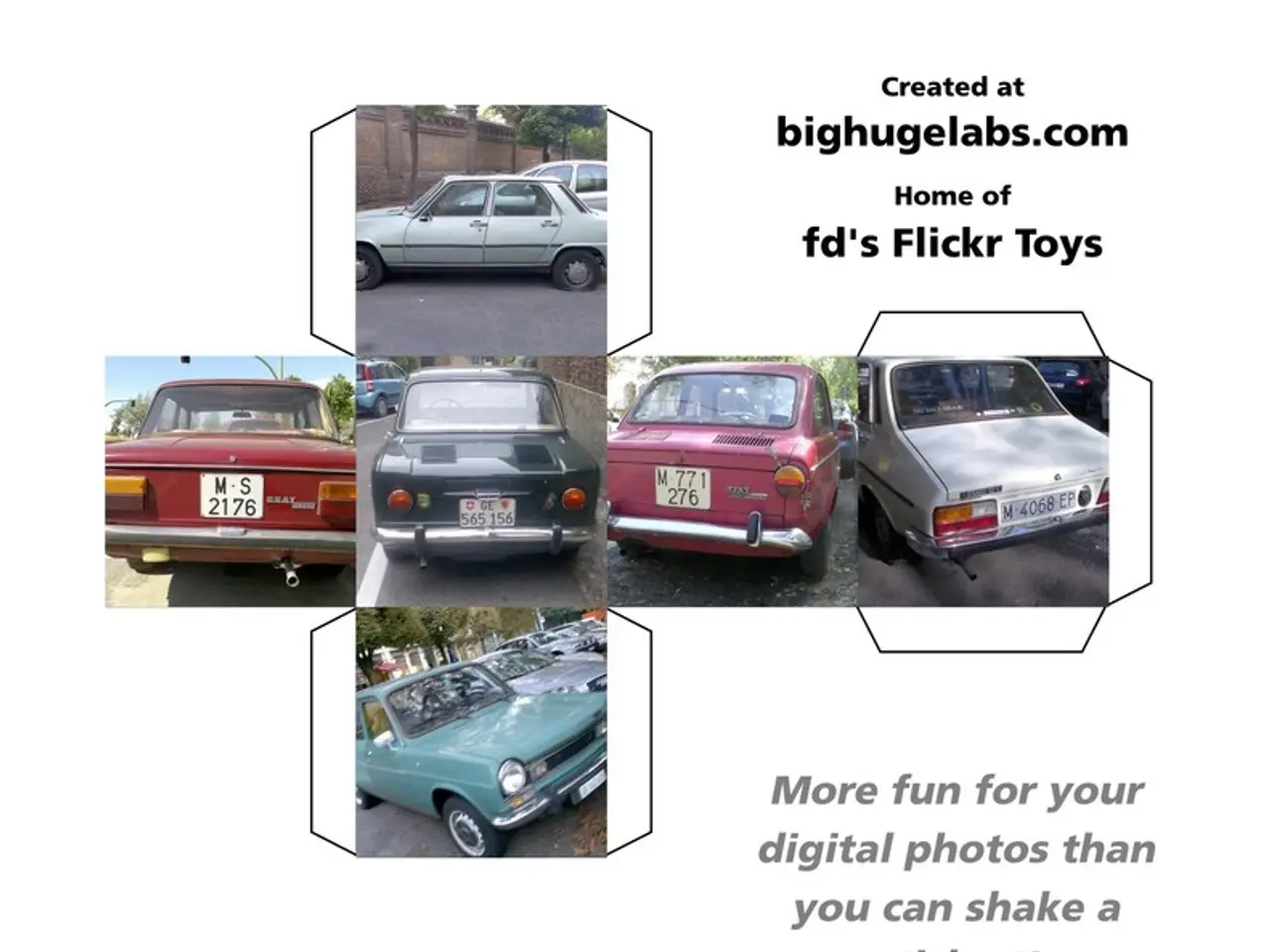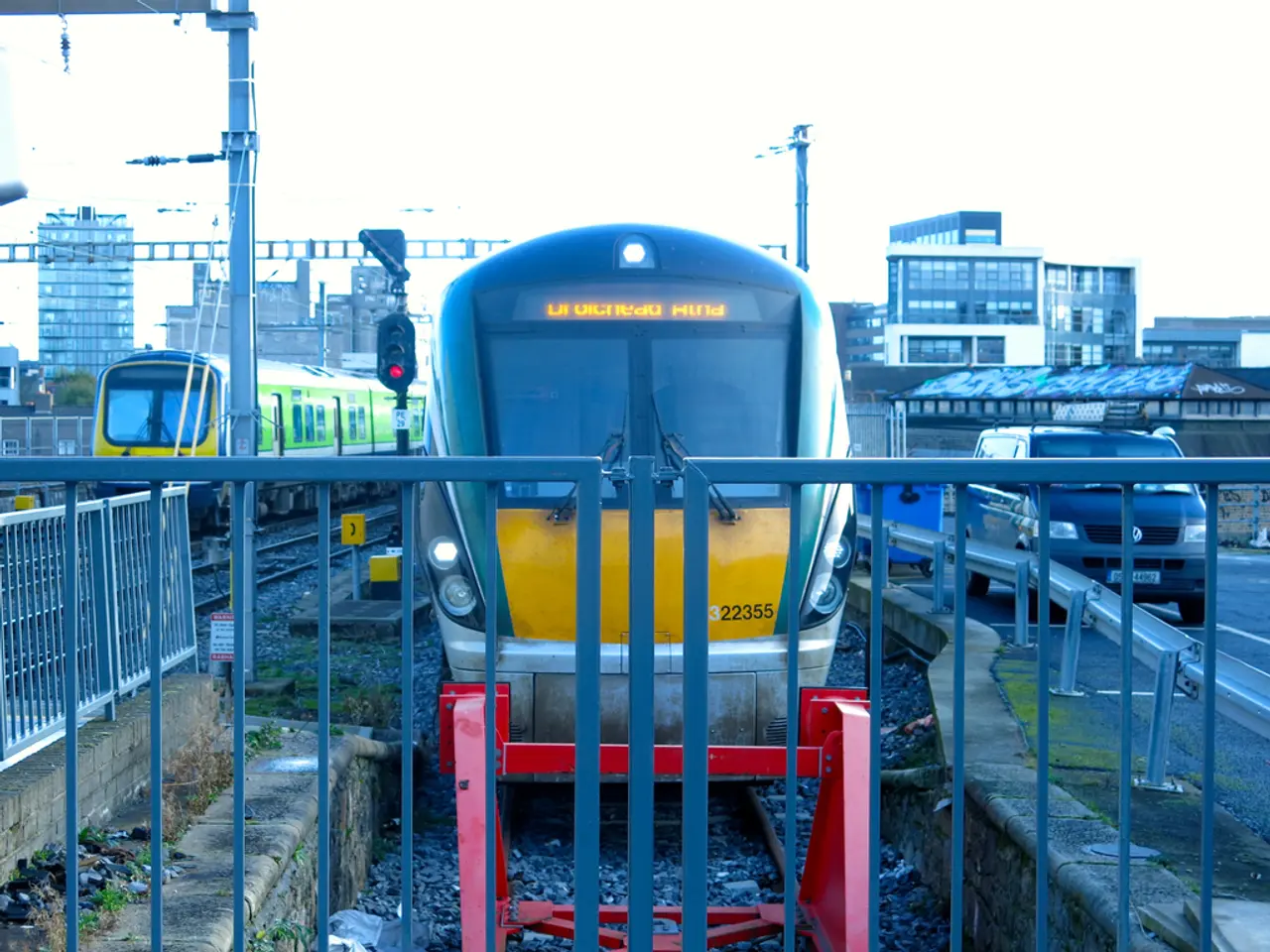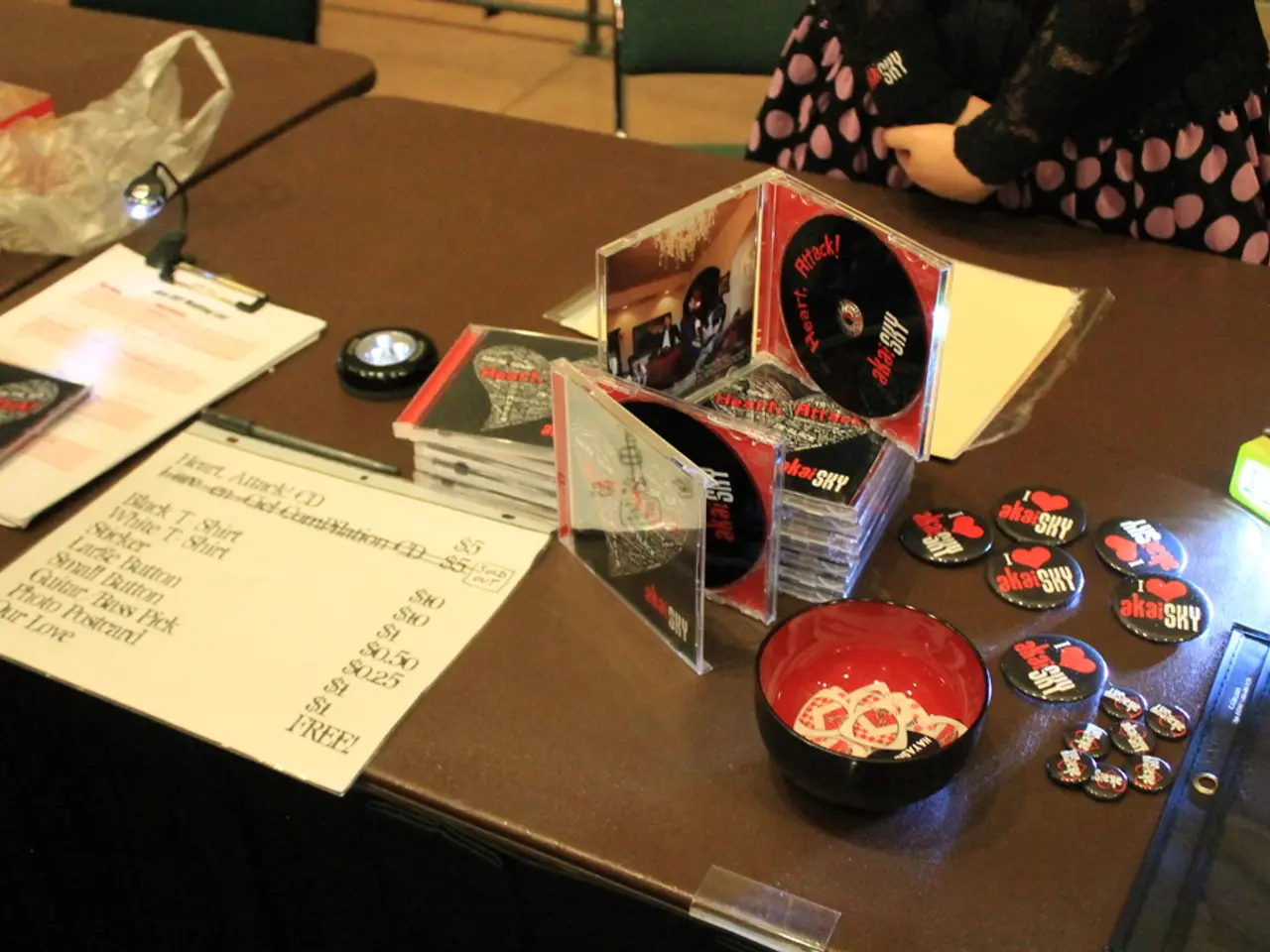Rivian's electric vehicle charging network to expand compatibility with other automobile brands' electric vehicles.
Rivian, the electric vehicle (EV) manufacturer, has ambitious plans for 2025. The company aims to fully adapt to the North American Charging Standard (NACS) by the end of the year, marking a significant step towards broader compatibility with other EV brands [1].
This transition is already underway, with Rivian's Adventure Network (RAN) actively rolling out compatibility with NACS. The network is currently equipping its charging stations with both NACS and Combined Charging System (CCS) connectors. This dual setup allows Rivian vehicles, as well as other EVs using NACS, to charge at these stations [1].
The rollout began earlier this year with key locations such as Joshua Tree and the Hamptons Outpost. More sites, including Yosemite, are scheduled for upgrades through summer and the rest of the year. Rivian plans to continue adding NACS cables to its Adventure Network sites across key markets, aiming for broader compatibility and a seamless transition for all drivers [1].
In addition to expanding its charging network, Rivian is also planning to build up the RAN in 2024. The company forecasts a production rate of around 57,000 vehicles in 2024 [2].
The expansion of the RAN is crucial for Rivian's future plans. The company expects this move to pave the way for future success [8]. Rivian aims to increase the number of RAN chargers to 3,500 at around 600 sites [6].
Rivian's new chargers will come in 400- and 800-volt packs, supporting CCS and NACS through an adapter. They will also feature a larger display and a tap-to-pay terminal [5].
It's worth noting that the Tesla Supercharger network already provides access to other electric vehicle brands, including Rivian [3]. However, Rivian's focus on NACS compatibility will undoubtedly make charging more convenient for its customers.
The net loss for Rivian in 2023 was $5.4 billion, but the company generated $4.4 billion in revenue during the same year [7]. Despite this, Rivian delivered 50,122 vehicles in 2023, a significant increase from 20,322 in 2022 [9].
Looking ahead, Rivian is planning to transition to the NACS standard by 2025 and is seeking funding from the US National Electric Vehicle Infrastructure (NEVI) program to expand the RAN [1, 4]. The company's future model, R2, is set to debut in 2026.
In conclusion, Rivian's 2025 plans involve expanding its charging network, embracing the NACS standard, and making its charging stations compatible with other EV brands. These moves are expected to support a seamless transition for all drivers and pave the way for future success.
References: 1. Rivian to Embrace NACS Standard by 2025 2. Rivian's 2024 Production Forecast 3. Tesla Supercharger Network Access for Other EV Brands 4. Rivian Seeks Funding for RAN Expansion 5. New Rivian Charger Features 6. Expansion Plans for Rivian's RAN 7. Rivian's 2023 Financial Results 8. RAN Expansion and Future Success 9. Rivian's 2023 Vehicle Deliveries
- By embracing the North American Charging Standard (NACS) by 2025, Rivian, the electric vehicle manufacturer, aims to ensure broader compatibility with other EV brands.
- The expansion of Rivian's charging network, including adding NACS cables to its Adventure Network sites, is anticipated to provide a seamless transition for all drivers.
- Rivian has plans to increase the number of RAN chargers to 3,500 at around 600 sites, making it more convenient for customers to charge their electric vehicles.
- The technology industry's focus on electric-vehicles, notably Rivian, is intertwined with the finance, transportation, and lifestyle sectors, as the widespread adoption of electric vehicles continues to grow.




